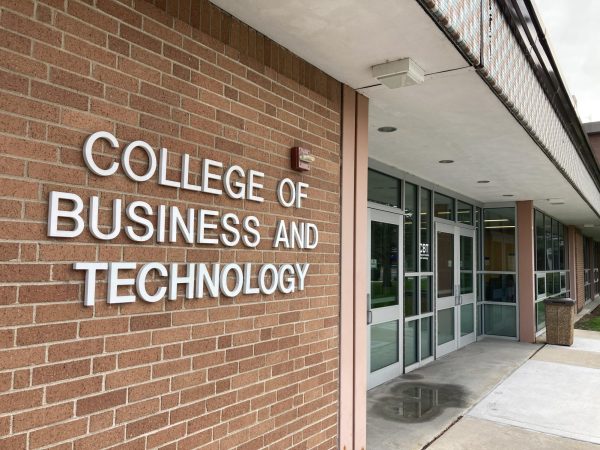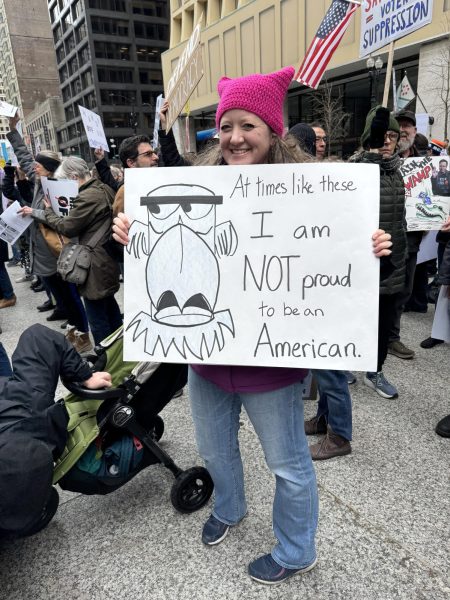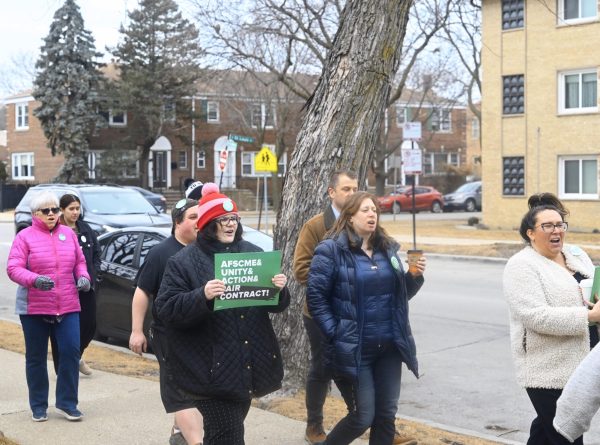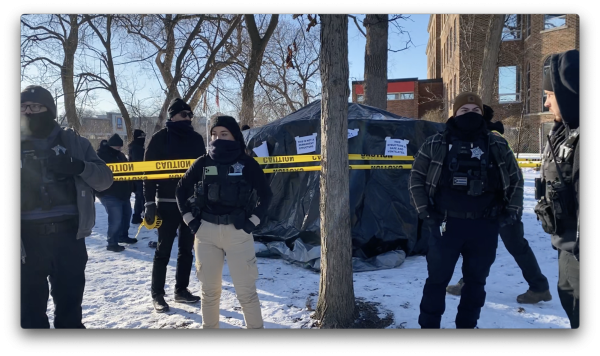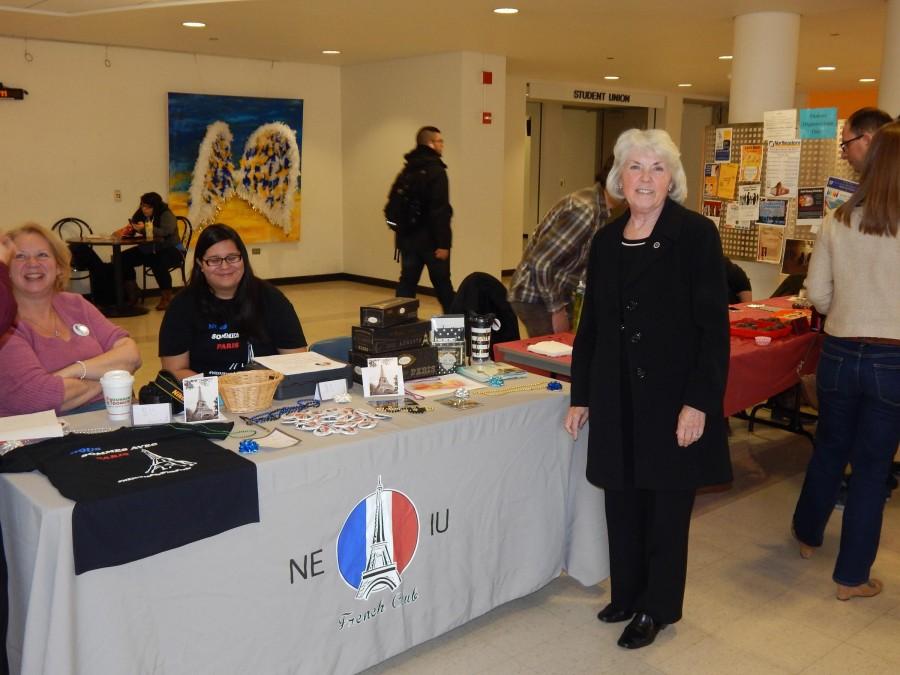Prayers, Pride and Peace for Paris
Recent News
President Hahs at the French Club and SGA’s bake sale to raise money for the French Red Cross
Terrorists associated with ISIS killed 130 people and injured 352 in the deadliest attack in France since World War II on Nov. 13. They opened fire in the Bataclan and a restaurant and detonated two bombs during a soccer game at the Stade de France. Francois Hollande, president of France, was in attendance.
As a result, the world has been in a state of tension.
“I was on my way to the university to play basketball with my friend, Theo, when I heard about the attacks,” said Etienne Lwamba, an exchange student from Lille, France studying political science and journalism at NEIU. “My roommate was texting me saying that Paris was a mess, it had become a warzone. By the time I was able to find out what happened it was already too late. I felt I had missed a part of my history.”
Lwamba said watching the events unfold was like watching a movie.
“I felt powerless,” he said. “I was just waiting to see what happens next to the places I know, the places I’ve been to, but I couldn’t do anything. I just had to sit and watch the events unfold and wait until the movie ended.”
Lwamba’s friend, Theo-Allex Billaud, an exchange student from Grenoble, France studying business marketing at NEIU, said he felt like he was flying in a plane.
“To me it felt like flying. When you’re in a plane you have no control, you’re powerless. The only thing you can do is watch everything in front of your eyes turn into disaster. Every two minutes we were getting messages from friends about things getting worse and worse. There was an explosion there, a killing here, a killing there. It was very stressful.”
Billaud’s sister lives in Paris, about 10 minutes from Bataclan. On that night, he couldn’t get in contact with her.
“It was a very stressful evening,” Billaud said. “I stayed up until 4 a.m. trying to find out if my sister was okay. One of my friends was able to get a hold of her and told me that she was safe. It didn’t take anything away from the tragedy but at least I knew she was okay.”
The people of France, and the world, have shown strength with their solidarity. While fans evacuated from the stadium they could be heard singing France’s national anthem, La Marseillaise. The following day at Saint-Louis hospital in Paris, near where the attacks took place, people waited over an hour to donate their blood to those who needed it.
“When I saw how France reacted, how the world reacted, I became very proud even though nothing’s perfect,” Lwamba said.
Here at Northeastern Illinois University, the French club and the SGA teamed up to hold a fundraiser to raise money for the French Red Cross. Various items were sold including buttons and shirts.
Since the attacks, many countries including the United States have been divided on the issue regarding the acceptance of refugees. Many people feel that that if we accept refugees from Syria and other countries affected by religious wars, it will make it easier for terrorist to have access within targeted countries. The U.S. plans to accept 10,000 refugees in the next fiscal year atop the 1,500 which have already been resettled since the Syrian conflict started in 2011.
According to a statement released by the White House on Nov. 18, “No refugee is approved for travel to the United States under the current system until the full array of required security vetting measures have been completed.”
On Thursday Nov. 19, the House of Representatives passed a bill to halt refugees from Syria entering the United States. The bill would require Homeland Security, the FBI and the National Intelligence director to certify that each Syrian refugee is not a security threat and eligible for admittance.
The White House threatened to veto the bill because it would cause unnecessary obstacles for refugees without providing additional security. President Barack Obama, on Thanksgiving, compared the Syrian refugees to the Mayflower Pilgrims.
“In 1620, a small band of pilgrims came to this continent, refugees who had fled persecution and violence in their native land,” Obama said in his Thanksgiving Day address. “Nearly 400 years later, we remember their part in the American story — and we honor the men and women who helped them in their time of need.”
“Don’t give into terrorist’s demands, and what terrorists want is fear. Killing terrorists or bombing terrorists isn’t the solution. Terrorism isn’t about people, it’s about radical ideas.”
Billaud shared a similar message with NEIU.
“Don’t be afraid.” Theo Said. “Wherever you are, wherever you go, whatever you’re doing, don’t be afraid.”
Your donation will support the student journalists of Northeastern Illinois University's The Independent, either in writers' payment, additional supplies and other items of note. Your contribution will allow us to purchase additional equipment for writers/photographers/illustrators and cover our annual website hosting costs.



